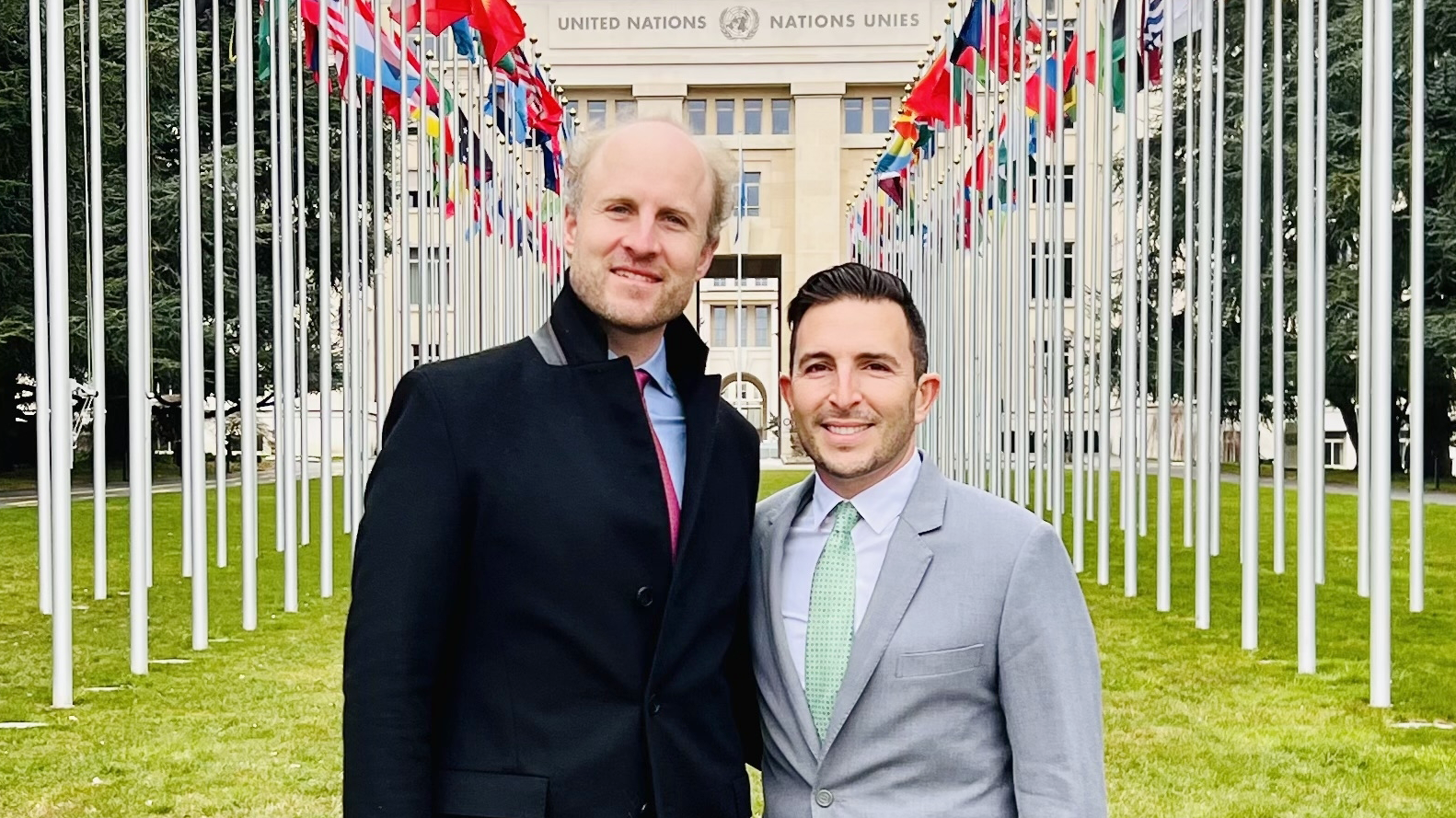This website uses cookies
We use cookies to ensure that we give you the best experience on our website. If you continue to use this site we will assume that you are happy with it.

On March 7, the Migrant Rights Initiative, based at Cornell Law School, officially launched its Migrant Rights Database, the first global data source benchmarking the extent to which states fulfill their international obligations to protect the rights of migrants. The occasion was celebrated with a pop-up event at the Palais des Nations, the headquarters of the United Nations Office at Geneva, Switzerland, as well as an official launch event at the Geneva Graduate Institute.
The Migrants Rights Database is a rigorous empirical account of laws protecting the human rights of all migrants and the cross-national implementation that helps them flourish. Representing seven years of work by some 100 lawyers, the resource charts sixty-five indicators with citation to law in thirty-six countries hosting seventy percent of the world’s migrants, and it will soon be expanded to include forty-five country cases. The project was supported through generous funding from the Swiss government, the Open Society Foundations, the World Bank, and the Cornell University Migrations Initiative.
The launch event at UN Headquarters featured an introduction by the United Nations Special Rapporteur on the Human Rights of Migrants, Professor Felipe Gonzáles Morales (by video); a demonstration by Migrant Rights Initiative Founder and Director Ian Kysel and Professor Justin Gest of George Mason University; and remarks by Dr. Koko Warner, director of the Global Data Institute at the International Organization for Migration. Numerous diplomats from state Permanent Missions to the United Nations attended.
“We imagine advocates and policy makers alike making use of this data,” said Kysel, who is an assistant clinical professor of law at Cornell, in his remarks. He noted that the database allows users to evaluate a category of rights and compare cases across regions, track changes in rights over time, analyze the consistency with which laws are implemented, and drill down to specific laws to borrow wording from protective legislative language and draw legal research for litigation.
“For international law researchers and lawyers, these specific citation details will also provide the ability to assess arguments about the status of key rights as customary international law and build on important work that to date has been focused primarily on international sources, rather than national law,” said Kysel.
He added that it was the hope of the Migrant Rights Initiative that the resource would inspire a race to the top among U.N. member states, as they “reflect on an index that puts France and Brazil in the lead when it comes to formal protection but Denmark and Spain in the lead when adjusted for implementation.”
Kysel concluded, “I want to emphasize that each one of the applications I have just described represents something that is new at the international plane. There is simply no other tool or database that would allow any one of these functions, let alone all of them.”
The second launch event at the Geneva Graduate Institute included remarks by vice chair of the African Commission on Human and People’s Rights, Professor Maya Sahli-Fadel, who has long served as the African Union’s Special Rapporteur on Refugees, Asylum Seekers, Internally Displaced Persons and Migrants in Africa. She noted the important potential of the database to inform national migration policy and invited representatives of the Migrant Rights Initiative to present their data at the next Commission session in Addis Ababa, the seat of the African Union.
The Migrant Rights Initiative conducts cutting-edge, interdisciplinary research on the human rights of migrants and fosters opportunities for innovative action that reshapes the way governments treat people who cross international borders. At Cornell, the Migrant Rights Initiative contributes to the Law School’s Migration and Human Rights Program and the University’s Migrations Initiative.